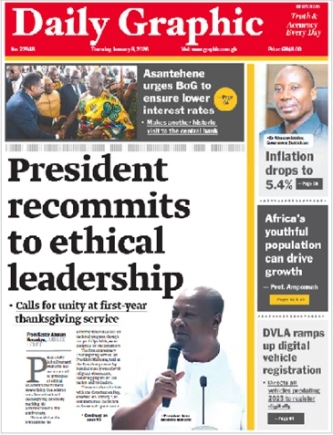Economic challenges not unprecedented – Tutu Agyare
An investment banker, Mr Tutu Agyare, says the challenges Ghana is facing are not unprecedented, but policy makers only need to clearly outline and communicate how they are resolving them.
“There is nothing happening in Ghana that hasn’t happened before. But there is nothing happening in Ghana that has not been successfully solved elsewhere. What needs to be done is that, in addressing the imbalances, the government has to communicate much clearly how it intends to deal with the challenges,” Mr Agyare said in Accra on May 22.
This was when he addressed business leaders at the 12th MTN Business World Executive Breakfast meeting, which was attended by business leaders and senior management personnel from across industries in Ghana.
The quarterly event is organised by BUSINESS WORLD, an indigenous magazine on business and sponsored by MTN, the leading telecommunications network in the country.
Speaking on the theme; “Smart Investing in an Emerging Middle Income Economy”, the London-based investment banker and founder of Nubuke Investments, said “we just had a national economic forum with a 22-point plan at Senchi. With all plans, the most important thing for international investors is to see who is going to do what by when.”
He explained that the challenge international investors perceived about Ghana was about how it was dealing with cost (expenditure) reductions, in the face of dwindling inflows.
“You have cost and revenue lines. The revenue line is being impacted by exchange rate losses, less inflow from cocoa and so on, and we are not making as much as we used to. Hence, a lot of investors want to see cuts on the cost line,” the investment banker stated.
Macroeconomics
Ghana has high fiscal deficit of 10.8 per cent of its total productivity (GDP), following a deficit of 11.8 per cent in 2012, and current account deficit widened to about 12 per cent of GDP in 2013, from US$4.9 billion in 2012 to US$5.7 billion in 2013.
Inflation has climbed from 8.7 per cent in January 2012 to 14.70 per cent in April 2014.
Due to the higher imports and lowering inflows from the country’s exports, the Ghana cedi has been losing grounds to major currencies. It lost a cumulative 17.6 per cent of its value by March 31 and 21.62 per cent by April 31.
The investment banker said how to resolve the energy challenges was also of concern to investors and the international community, stressing that “when people see that the timelines are being followed through the implementation stages, and then things are going to change.”
Investments
Mr Agyare’s Nubuke Investments looks at a broad range of areas in different economies for investments and he believes that attraction foreign direct investments depended on a lot of factors, as the investors’ primary focus was to maximise returns.
Currently, the company invests in a variety of industries, where they could get the best returns. They sectors include banking, insurance, oil and gas, palm oil, salt, bonds in Ghana and also in undervalued investments.
He emphasised “it is difficult to invest in countries where the macroeconomic environment was not good so investors look at the macroeconomics as well.”
Agric investments
Nubuke Investments sees a lot of potential in the country’s agricultural sector due to its huge potential.
For instance, the country spends over US$500 million to import rice and US$150 million to import ethanol, basically derived from cassava.
“Ghana has potential for agricultural investments and it doesn’t take more than discipline and living outside the city to set up farms to generate same returns as in working in the bank,” he explained.
However, he called for the structure of the cocoa sector to be replicated for other crops such as rice for them to remain attractive to the generality of Ghanaians and investors.
Derivatives
On derivatives – investment assets that take their values from other underlying assets – Mr Agyare said although the discipline was simple, but required deeper understanding, skills and proper regulation, saying “it has a lot of pitfalls and therefore requires expertise.”
“Until we have the expertise to regulate and manage, we shouldn’t go near them,” he said.
 Click the link to read your copy.
Click the link to read your copy.